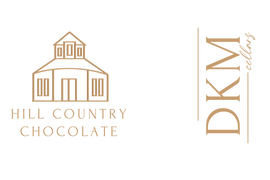The unique character of a small Texas town can often be traced back to its diverse cultural influences, shaping both its identity and traditions. In the 19th century, a significant wave of Texas immigrants settled in the area, drawn by promises of fertile land and opportunity.
The rich tapestry of Fredericksburg history reveals how these early settlers infused their customs and practices into the fabric of the community.
Festivals celebrating this heritage have become a hallmark of the town, showcasing food, music, and dance that reflect deep-rooted traditions.
Today, these cultural influences play a vital role in attracting heritage tourism and enhancing the vibrant atmosphere of the Hill Country.
Cultural Influence Of German Heritage
Rich traditions from Europe have woven themselves into the vibrant tapestry of local culture, creating a unique blend that reflects the area's heritage. Celebrated events like Oktoberfest highlight this fusion, where traditional cuisine and lively music bring together community demographics in a joyful atmosphere.
Festivals serve not just as entertainment; they are a testament to the enduring pioneer spirit of the region, showcasing the influence of German customs.
Heritage organizations play a pivotal role in language preservation and cultural continuity, ensuring that younger generations remain connected to their ancestry.
Local wineries often enhance these gatherings, drawing in visitors who wish to experience the historical significance of these cherished traditions. Together, they foster a strong sense of identity and belonging among residents, contributing to the rich cultural landscape.
Texas Immigrants And Settlement Patterns
The arrival of various migrant groups in Texas has profoundly influenced the state's diverse landscape. Among these, German settlers during the mid-19th century left a significant mark, seeking refuge from political unrest and economic hardship in their homeland.
This migration catalyzed the establishment of vibrant ethnic communities, particularly evident in towns like Fredericksburg, where population statistics revealed a burgeoning demographic shift.
These newcomers brought their customs, which resulted in a rich tapestry of traditions that interwove with existing local cultures.
Fredericksburg emerged as a focal point for cultural exchange, hosting festivals that celebrated German heritage and allowing folk music to thrive alongside other artistic expressions.
Beer gardens, a hallmark of their social life, provided spaces for community gatherings, reflecting the settlers' influences. The artisanal crafts introduced by these immigrants not only enriched local economies but also established vibrant ethnic communities where genealogy and cultural exchange flourished through customs, folk music, beer gardens, and landmarks, contributing to the rich tapestry of population statistics and rural settlement.
German Settlers in Texas
- German settlers migrated to Texas in the mid-19th century, escaping political unrest and economic hardship.
- Fredericksburg became a center for cultural exchange, celebrating German heritage through festivals and folk music.
- Beer gardens established by German immigrants served as important community gathering spaces.
- The artisanal crafts introduced by these settlers contributed to local economies and enriched the cultural landscape.
Fredericksburg History And Its German Roots

In the heart of Texas lies a community whose origins speak to a rich narrative of migration and cultural blending. Established in the 1840s, this settlement emerged as a haven for immigrants seeking opportunity and stability amid the turmoil of their homeland.
Key figures like John O.
Meusebach were instrumental in its foundation, driven by aspirations for land and a sense of belonging.
The factors prompting German migration included political unrest and economic hardship, leading many to seek a new life in America. As settlers arrived, they brought with them diverse traditions that would significantly influence the region's cultural identity.
The impact of this heritage is evident in festival celebrations, local customs, and the commitment to historic preservation.
Renowned for its vibrant events, the community fosters an environment rich in architectural heritage that continues to attract visitors and enhance social fabric. Today, the diversity of our community is celebrated through festival celebrations that highlight our food traditions, while also fostering a deeper understanding of our architectural heritage and regional identity, making each event a vital part of the social fabric and an essential aspect of the ongoing demographics study of our sites.
Festivals Celebrating German Cuisine And Traditions
Celebrating cultural traditions through food creates a vibrant tapestry that connects communities and nurtures shared memories. These gatherings often highlight regional cuisine, offering a taste of history and local flavors that resonate deeply with attendees.
As families come together for reunions, they not only relish traditional dishes but also strengthen their pride in their heritage.
Heritage organizations play a vital role in these festivities, ensuring that immigrant stories and culinary practices are cherished and preserved for future generations.
The lively folk art and musical heritage present at these events further enrich the experience, promoting cultural exchange and fostering engagement among participants. Such celebrations significantly bolster the local economy, drawing in tourism that benefits diverse businesses and unites the community in a common cause.
Celebrating regional cuisine through immigrant stories and roots, these gatherings foster family reunions that honor pride in heritage organizations, showcase folk art and musical heritage, and contribute significantly to the local economy while enhancing the tourism impact.
Celebrating Cultural Traditions Through Food
- Regional cuisine reflects the history and local flavors of a community.
- Family reunions centered around traditional dishes strengthen pride in cultural heritage.
- Heritage organizations help preserve immigrant stories and culinary practices for future generations.
- Cultural celebrations boost local economies by attracting tourism and supporting diverse businesses.
